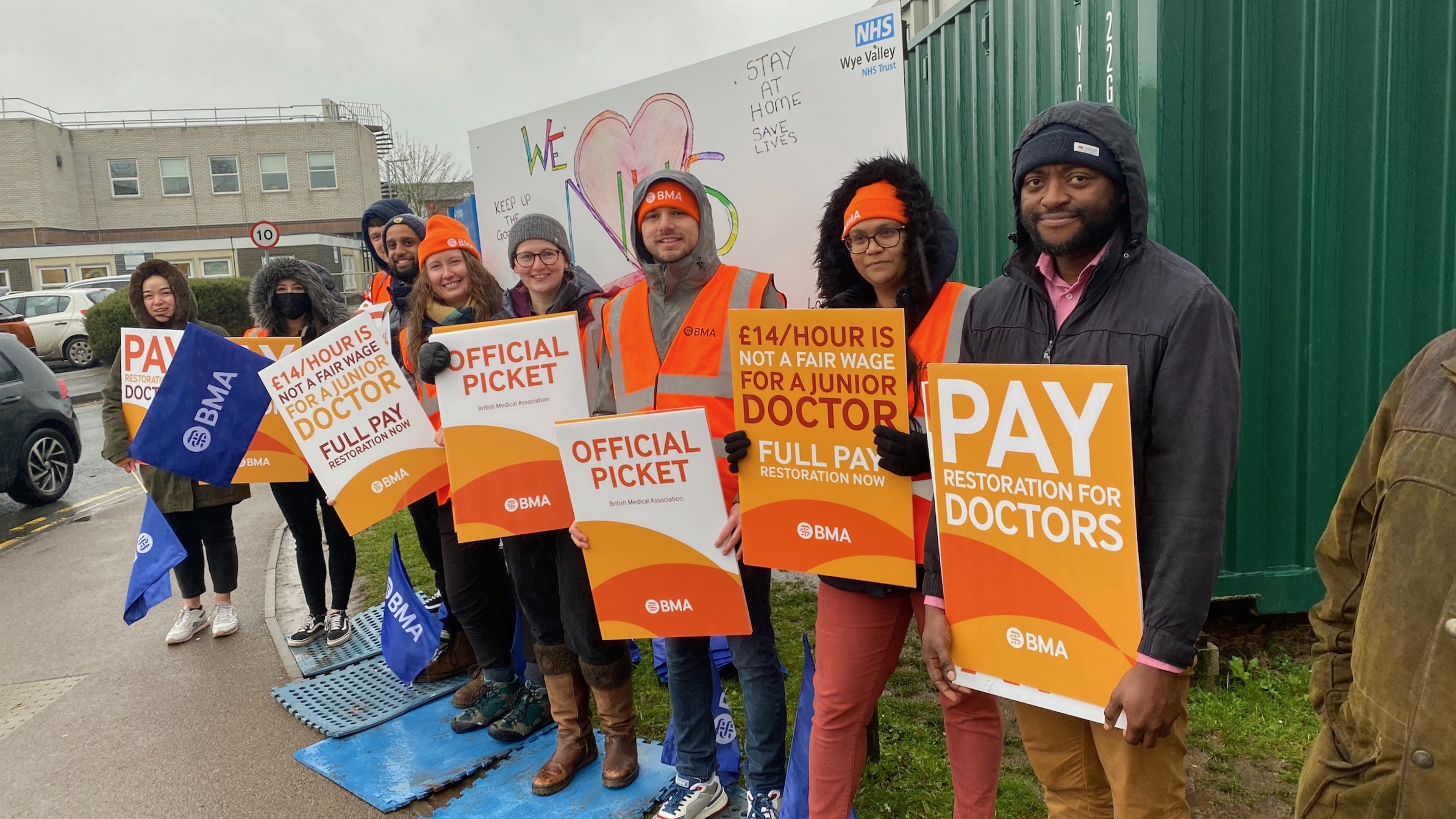Tens of thousands of junior doctors in England began a 72-hour strike on Monday, March 13, after the government failed to come up with an offer good enough to bring them to the bargaining table. Junior doctors are asking for full pay restoration, an approximately 30% salary increase to make up for the income lost since 2008. They are also demanding investments into the National Health Service (NHS) that would make working conditions bearable, addressing high rates of burnout and emigration.
The British Medical Association (BMA) and the Hospital Consultants and Specialists Association (HCSA), which have been coordinating the strike, refused Health Secretary Steve Barclay’s offer of a one-off payment to address the rise of costs of living and a potential, undefined raise for next year. A similar offer led to the postponement of strikes planned by nurses and other health workers last week. Junior doctors, however, found the offer unacceptable and insisted on more decisive action to tackle the crisis that the NHS is facing at the moment.
Read also: Health workers’ strikes to continue in the UK, government agrees to negotiations
According to the junior doctors’ associations, newly qualified doctors employed in the NHS make £14 per hour (approximately USD 17), which puts them in an extremely precarious position. Many of them, especially those who are not from well-off backgrounds, are shouldering significant debt accumulated during medical studies as they work for the meager salary.
The @BMA_JuniorDocs protest on Whitehall is incredible.
Great mobilisation and atmosphere.#JuniorDoctorsStrike #SOSNHS pic.twitter.com/PqoY7ERxa3
— benfolley (@benfolley) March 13, 2023
Thousands of operations and medical appointments were canceled during the first day of the strike, including in services which are usually left out of industrial action, like ambulance and emergency services. While Health Secretary Barclay put into question the morality of the strike, most health workers—including some from hospital management—declared their support for the junior doctors’ actions. They stated their support even as they faced severe disruption to health services and senior doctors were called to take on the care roles usually carried out by junior colleagues.
From his side, the health secretary said junior doctors’ demands would cost £2 billion (USD 2.4 billion) to fulfill and thus are “simply unaffordable.” But most people in England feel the NHS is worth protecting and investing in. Thousands of activists, patients, and health workers took to the streets of London a couple of days before the beginning of the strike in a “SOS NHS” protest. In addition to expressing their support for striking health staff, the protesters called for an end to NHS privatization and better health care for all.
Today, thousands marched in London to save the NHS.
The government is demonising migrants and refugees, but we will not be divided.
The NHS wouldn’t exist without immigration — let’s stand up for our public services, and for all those who keep them running! pic.twitter.com/bIfgb7RkUj
— Jeremy Corbyn (@jeremycorbyn) March 11, 2023
People’s Health Dispatch is a fortnightly bulletin published by the People’s Health Movement and Peoples Dispatch. For more articles and to subscribe to People’s Health Dispatch, click here.





